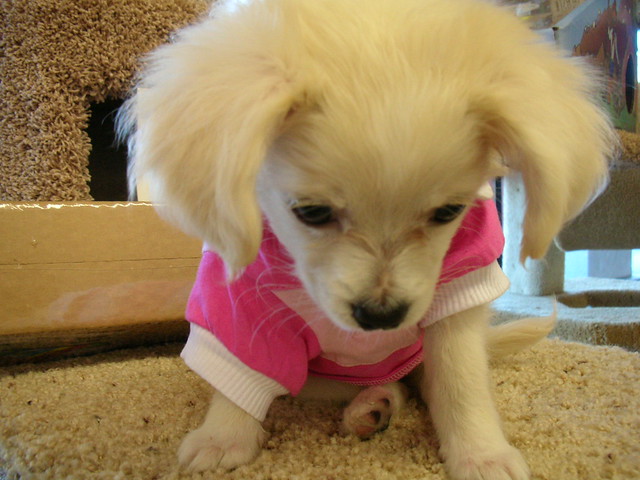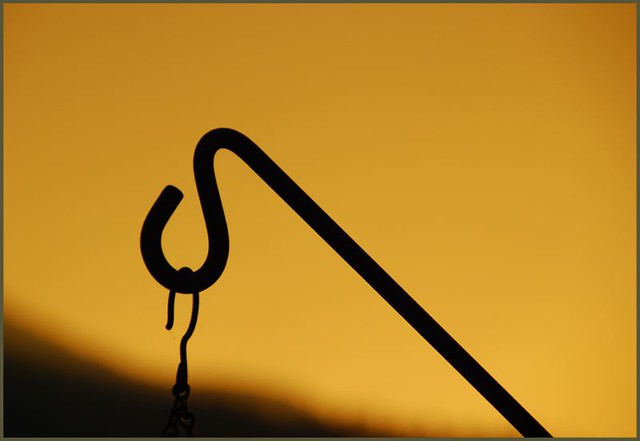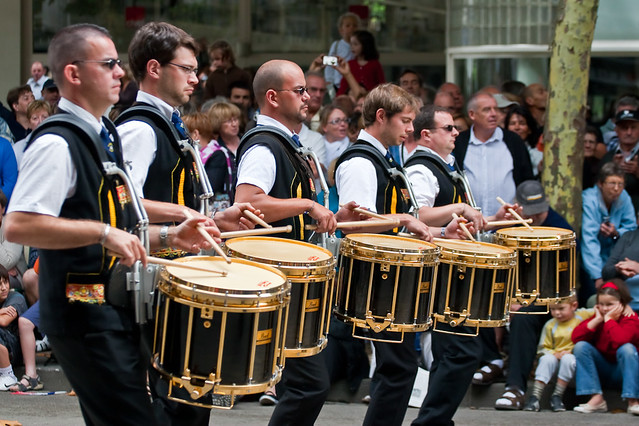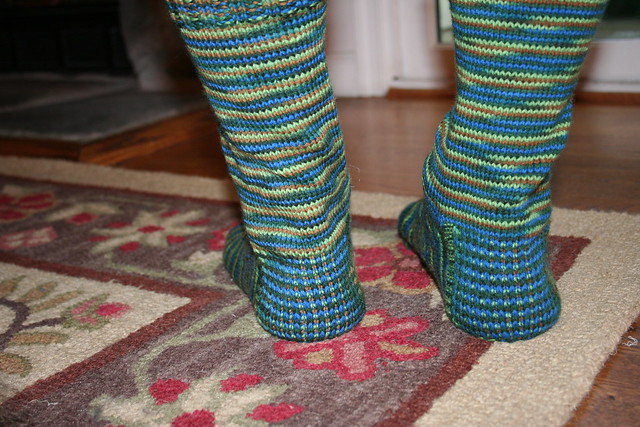Today we’re looking at words for sticks, rods and related things in Celtic languages.

Words marked with a * are reconstructions.
| Proto-Celtic |
*slattā = staff, stalk |
| Old Irish (Goídelc) |
slat = rod, lath, twig; ceremonial rod, staff; branch of a tree; scion, youth, stripling; yard (measure of length) |
| Middle Irish (Gaoidhealg) |
slat = rod, lath, twig, branch of a tree, scion, youth, stripling, a yard |
| Irish (Gaeilge) |
slat [sˠl̪ˠɑt̪ˠ/sˠlˠat̪ˠ] = rod, slender stick, cane, switch, wand, yard, outskirts
slatach = rodlike, made of rods, wickered
slatáil = beat with a switch or birch
slataire = slip (of a person), sapling, tall supple youth
slatamáil = (act of) birching
slatfhear = slender supple man
slatóg = small rod, twig |
| Scottish Gaelic (Gàidhlig) |
slat [sl̪ˠahd] = long stick, rod, yard (measure), penis
slatag = small branch, twig
slat Ghàidhealach = Highland yard (8′)
slat-tomhais = standard, yardstick
slatan-draoidheachd = magic wand, fairy wand |
| Manx (Gaelg) |
slat(t) = batten, birch, cane, mace, rail, rod, slat, stem, switch, verge, wand
slat hendreil = lightning-rod
slat hows(h)e = criterion, yardstick
slat hummee = dipper, dipstick
slattag = perch, small rod, small stick, stripe, swizzle stick, twig |
| Proto-Brythonic |
*llaθ = rod, staff, stick, spear, beam, rafter, pole |
| Middle Welsh (Kymraec) |
lath = rod, staff, wand, stick |
| Welsh (Cymraeg) |
llath [ɬaːθ] = rod, staff, wand, stick, lath, spear, lance, spar, rafter, beam, offshoot, descendant
llath Gymreig = Welsh yard (about 40 inches)
llathaid = yard’s length, yardstick, length of rod, pole or perch, square yard
lathen = rod, wand, staff, stick, lath
llathennaf, llathennu = to measure, be critical (of)
hudlath = magic wand |
| Middle Cornish (Cernewec) |
lath = hook, hinge |
| Cornish (Kernewek) |
lath = stick, staff, yard |
| Old Breton |
lath = pole, rod |
| Middle Breton (Brezonec) |
lazh, laz, lah = pole, rod |
| Breton (Brezhoneg) |
lazh = slat (of a plough), board, batten |
Etymology: unknown – possibly from a substrate language of northwestern Europe [source].
Words that may be related include lath (a thin, narrow strip, fastened to the rafters) in English, Latte (batten, lath, slat) in German, lat (slate, lath, ruler, yardstick) in Dutch, and lata (can, tin, plate) in Spanish [source].
| Proto-Celtic |
*mazdyo- = stick |
| Old Irish (Goídelc) |
maide = stick |
| Middle Irish (Gaoidhealg) |
maide, mada = stick, staff, beam, log, wood, timber |
| Irish (Gaeilge) |
maide [ˈmˠadʲə/ˈmˠædʲə] = stick, bar, beam |
| Scottish Gaelic (Gàidhlig) |
maide [madʲə] = piece of wood, stick, rod
maide-brataich = flagstaff
maide-làimhe = walking stick
maide-làraich = floorboard
maidean [madʲan] = small piece of wood / stick, small rod |
| Manx (Gaelg) |
maidjey [ˈmaːʒə / ˈmaːjə] = stick, rod, pole, leve, bat, club, cue, lever, bar
maidjey cassee = steering oar
maidjey obbee = magic wand
maidjey shooyl = walking stick |
Etymology: from PIE *masdo- (plank, board, pole) [source].
Words from the same PIE roots include mast in English, Mast (mast, pylon) in German, and most (bridge) in Czech, Polish and Slovak [source].
| Proto-Celtic |
*sɸondos, *sfondo- = stick, staff |
| Old Irish (Goídelc) |
sonn = beam, palisade, post, prop, stake |
| Middle Irish (Gaoidhealg) |
sond, sonn, sunn = stake, post, beam, prop, club, palisade |
| Irish (Gaeilge) |
sonn = stake, post, upright (in a structure), shaft, pole, stout handle (of a weapon)
sonnach = paling, palisade, stockade |
| Scottish Gaelic (Gàidhlig) |
sonn [sɔun̪ˠ] = champion, hero, post, stake
sonnach [sɔn̪ˠəx] = paling, palisade, palisaded |
| Proto-Brythonic |
*fonn = stick (?) |
| Old Welsh (Kembraec) |
finn = stick, staff, rod
fonnaul = pertaining to a stick or spear |
| Middle Welsh (Kymraec) |
ffonn, ffon = stick, staff, rod
effonnaut, ffonod = stroke with a stick, blow, stripe
fonog = carrying a staff or spear, spearman |
| Welsh (Cymraeg) |
ffon [fɔn] = stick, walking-stick, staff, crook, rod, club, cudgel, lance, bar, rung, stave
ffondorio = to beat with a stick
ffoniad = blow with a stick, beating
ffonio = to beat with a stick, thrash
ffonnod = stroke with a stick, blow, stripe
cynffon = tail |
Etymology: from PIE *sph₂en- (to cut off; chip, shaving, log, length of wood) [source].
Words from the same roots possibly include spoon and sphene (titanite – a kind of mineral) in English, sponda (bank, shore, side, bedstead) in Italian, Span (chip, shaving, clipping) in German, and piena (cleat) in Finnish.
| Old Irish (Goídelc) |
fé = rod for measuring a grave |
| Proto-Brythonic |
*u̯ii̯ə-l- = rod |
| Middle Welsh (Kymraec) |
gweyelin, guaylen, gwyeil, gwyalen = rod, twig, sapling, cane, stick, offshot
gwialenffon, gwialen ffon = staff, stick, cudgel, pole
guialennig = small rod or stick, switch
gwiailffyn = stick, staff |
| Welsh (Cymraeg) |
gwialen, gwyalen = rod, twig, sapling, cane, stick, offshot
gwialenffon = staff, stick, cudgel, pole
gwialennig = small rod or stick, switch, short line, measure of length, perch, pole
gwialfa = wicker-basket, pannier, place where osiers grow
gwialffon = stick, staff |
| Old Cornish |
guaylen = rod, yard |
| Middle Cornish (Cernewec) |
gwelen, gwelan = rod, yard (measure)
gwel = rods, sticks
gwelen = rod, stick |
| Cornish (Kernewek) |
gwelen = cane, pole, rod, shaft, stick, wand
gwelen frynkek = baguette
gwelen hus = magic wand
gwelennik = chopstick |
| Middle Breton (Brezonec) |
guiall, guial, guyal = rods
guialen = rod, wand |
| Breton (Brezhoneg) |
gwial = rods, flexible wood
gwalenn = pole, rod, yardstick
gwalennaj, gwalenner = yardstick
gwalennata = to pole, reprimand |
Etymology: related to Latin vieo (to bend, twist, plait, weave), from Proto-Italic *wijejō, from Proto-Indo-European *wh₁iéye-, from *weh₁y- (to twist, to twine). Words from the same roots include wire and garland in English [source].

Sources: Wiktionary, Am Faclair Beag, Online Manx Dictionary, Teanglann.ie, eDIL – Electronic Dictionary of the Irish Language, In Dúil Bélrai English – Old Irish glossary, Geiriadur Prifysgol Cymru, Gerlyver Kernewek, Dictionaire Favereau, TermOfis, English – ProtoCeltic WordList (PDF), Etymological Dictionary Of Proto Celtic











